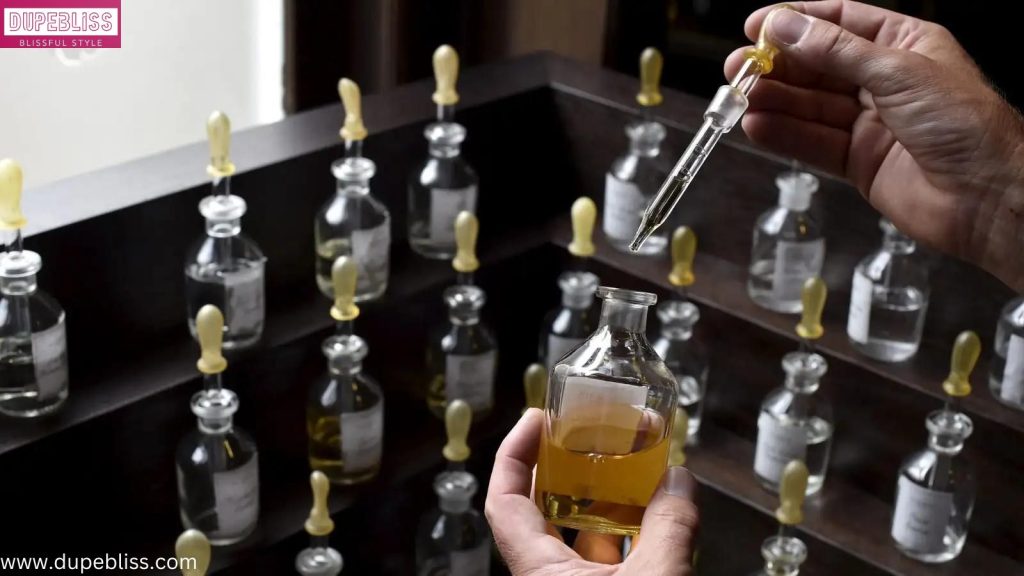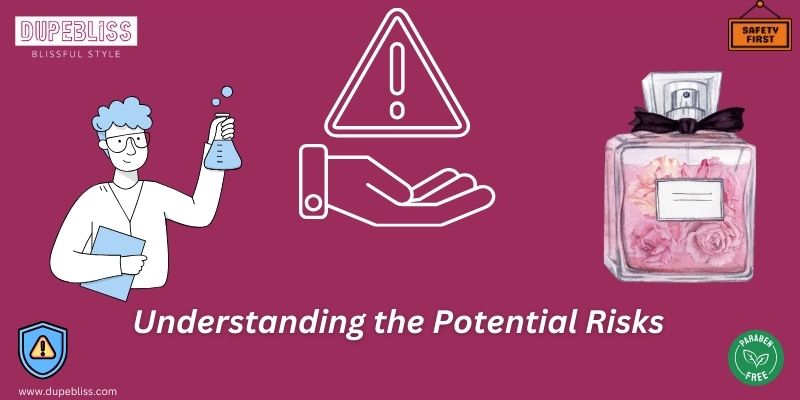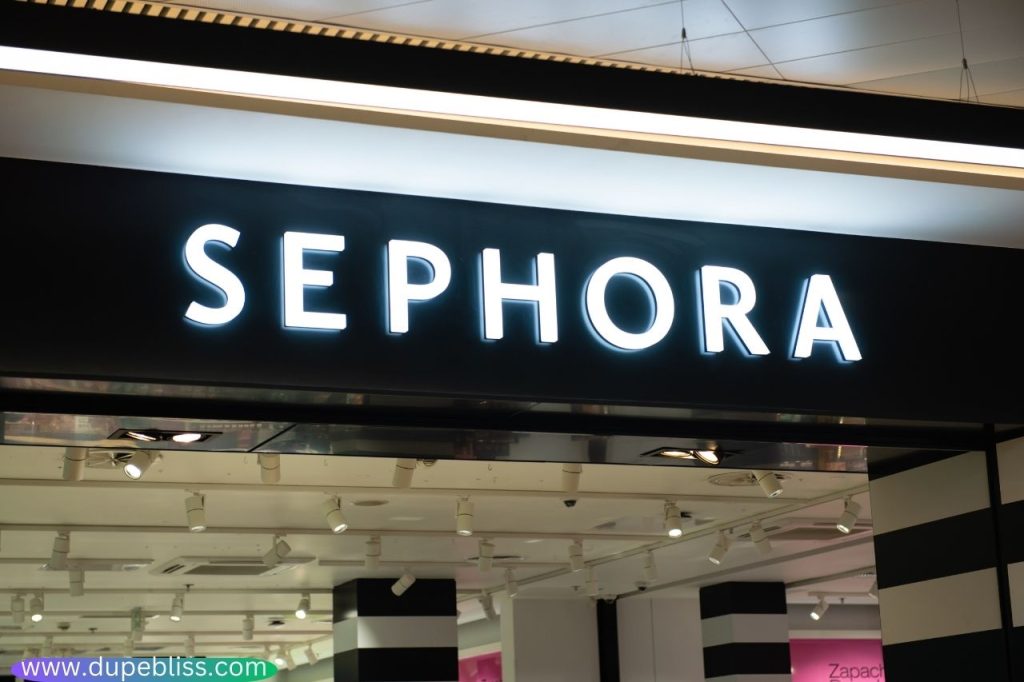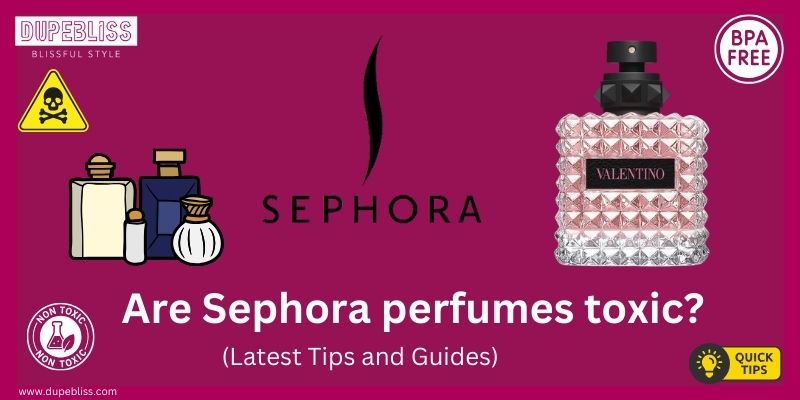In the ever-changing world of beauty, fragrance remains a cornerstone of personal expression. However, as consumers become more aware of the safety of ingredients, an important question arises: Are Sephora perfumes toxic? As a leading cosmetics retailer committed to clean beauty, Sephora implements stringent policies to reduce harmful chemicals. This study examines Sephora’s fragrance selection in depth and detail, examining the brand’s commitment to safe products and factors to consider for an appropriate approach to choosing a healthy fragrance.
Sephora’s Commitment
Sephora is a leading beauty retailer known for its great selection of fragrances. Significant steps have also been taken to promote “clean beauty” emphasizing safe ingredients products. Here is a breakdown of their efforts:
Safer Chemicals Policy: Since 2019, Sephora has implemented a policy that restricts the use of certain chemicals considered potentially harmful in beauty products.
Clean at Sephora Program: This program highlights fragrances that meet stricter ingredient criteria and are formulated without many restricted chemicals.
Reduced Risk in Branded Products: Sephora actively works with partner brands to reduce the presence of specific chemicals of concern in their fragrances.
Understanding Perfume Ingredients

Before we talk about Sephora perfume safety, let’s take a closer look at all the ingredients. Perfumes are made from a blend of different chemicals, and natural and synthetic ingredients that contribute to their unique aroma. These factors generally fall into several categories:
Natural Essences
Derived from plants, flowers, fruits, and other natural sources, these essences provide the fragrance with its characteristic aroma. Examples include essential oils extracted from lavender, rose, and citrus fruits.
Synthetic Compounds
These are artificially created molecules designed to mimic natural scents or create entirely new fragrances. Synthetic compounds offer perfumers a wide range of options in terms of scent complexity and longevity.
Fixatives and Solvents
Fixatives help stabilize the fragrance and prolong its scent, while solvents dilute the ingredients and aid in their dispersion. Common fixatives include musk and ambergris, while solvents like alcohol are used to dissolve the perfume oils.
Phthalates
Often used to enhance scent longevity, phthalates have been linked to potential health concerns. Fortunately, Sephora has adopted a stricter policy regarding phthalates in its private-label products.
Navigating the Regulatory Landscape
An important aspect of the fragrance safety discourse revolves around regulation—or perceived lack thereof—in the cosmetics industry In the United States, the Food and Drug Administration (FDA) regulates products cosmetics, including perfumes, are regulated under the Federal Food and Drug Administration (FD&C Act) ) unlike drugs, for cosmetics Pre-market from the FDA -No approval required, places a burden on cosmetic companies to ensure that the products are safe and compliant
The Fragrance Industry Landscape
The fragrance industry as a whole faces constant scrutiny of potential ingredient hazards. Here’s what you need to keep in mind:
Limited Ingredient Transparency: The ubiquitous “fragrance” label on perfume bottles can encompass a multitude of undisclosed ingredients. This lack of transparency makes it challenging to fully assess potential risks.
Potential Health Concerns: Research suggests that some fragrance chemicals might be linked to allergies, skin irritation, and even endocrine disruption. However, it’s important to note that research in this area is ongoing.
Understanding the Potential Risks

Many perfume ingredients are generally considered safe for use in cosmetics, but some have raised concerns due to their potential health effects. Here are a few key ingredients that consumers may want to be cautious of:
- Phthalates: These chemicals are often used as plasticizers in fragrance formulations and have been linked to hormone disruption and reproductive issues.
- Parabens: Widely used as preservatives in cosmetics, including perfumes, parabens have been associated with hormone disruption and potential carcinogenicity.
- Synthetic Musks: Compounds such as nitro musks and polycyclic musks have raised concerns about their persistence in the environment and potential bioaccumulation in the body.
- Skin Irritation: Certain fragrance components, both natural and synthetic, can irritate the skin, especially for people with sensitivities.
Discover Toxicity Myths
The perception that Sephora perfumes are toxic often stems from misconceptions about phthalates and other specific ingredients. While the study raised concerns about the potential health effects of phthalates, they are considered safe to use by regulatory bodies such as the FDA and the European Union Scientific Committee on Consumer Safety (SCCS). shall be used in cosmetics within defined limits.
Safety and Transparency Initiatives
In response to consumer demands for transparency, Sephora has prioritized comprehensive labeling and display practices. An extensive list of ingredients allows consumers to make informed decisions that match their tastes and feelings.
Analyzing Sephora Perfumes
To assess the safety of Sephora perfumes, let’s examine the ingredients of a few popular fragrances available at the retailer:
| Perfume Name | Key Ingredients | Potential Concerns |
| Chanel Coco Mademoiselle | Bergamot, Rose, Patchouli, Vanilla | Contains potential allergens such as limonene and linalool |
| Dior Sauvage | Bergamot, Ambroxan, Sichuan Pepper, Patchouli | Some formulations may contain synthetic musk |
| Marc Jacobs Daisy | Strawberry, Violet Leaf, Jasmine, White Woods | May contain synthetic fragrance ingredients |
Choosing Your Perfect Fragrance

So, how do you navigate the world of Sephora fragrance while putting your well-being first? Here are some helpful tips:
Look for the “Clean at Sephora” Label: This is the easiest way to identify perfumes formulated without many of the restricted chemicals.
Do Your Research: Utilize online resources like the Environmental Working Group’s Skin Deep database [4] to research specific fragrance ingredients and their potential risks.
Consider Natural or Essential Oil-Based Fragrances: These are often, but not always, less likely to contain concerning chemicals. However, even natural ingredients can cause skin irritation in some individuals.
Test Before You Invest: Whenever possible, try a small amount of the perfume on your wrist before purchasing a full bottle. This allows you to assess if it irritates your skin.
Expert Reviews
Here are some expert reviews:
Dr. Amelia Green, Dermatologist:
“Sephora’s ‘Clean at Sephora’ initiative is a step in the right direction, but it’s not foolproof. Patch testing remains crucial, especially for sensitive skin. Consider natural perfumes or essential oil blends for a potentially gentler experience.”
Dr. David Park, Environmental Toxicologist:
“While some fragrance ingredients raise concerns, research is ongoing. Opting for ‘clean’ options and avoiding overspraying can minimize potential exposure. Look for brands committed to responsible sourcing and production practices.”
Olivia Jones, Fragrance Consultant:
“Sephora offers a vast fragrance selection. Transparency from brands is key. Research ingredients and prioritize houses known for their commitment to high-quality, ethically sourced materials.”
Personal Recommendation
As a field expert, In my view, Sephora perfumes are crafted with care, it’s crucial for consumers to navigate their choices wisely, considering personal sensitivities. Let’s keep the scent journey safe and enjoyable through informed decisions and ongoing dialogue.
FAQs
Are all Sephora perfumes toxic?
Not necessarily. The toxicity of a perfume depends on its specific ingredients and formulation.
Is Sephora makeup toxin-free?
Sephora makeup isn’t toxin-free, but their “Clean at Sephora” line offers safer options.
Are natural perfumes safer than synthetic ones?
Not always. While natural perfumes may contain fewer synthetic chemicals, they can still contain allergens and other potentially harmful compounds.
What are some safer fragrance choices at Sephora?
Look for the “Clean at Sephora” label! These brands often use natural ingredients or avoid potentially risky chemicals. Researching brands known for clean beauty practices is another great tip.
Conclusion
The world of fragrance is a beautiful one, and Sephora offers a vast selection to explore. By understanding Sephora’s efforts towards clean beauty, the potential risks of fragrance ingredients, and following these helpful tips, you can make informed choices and find the perfect fragrance that complements your style without compromising your well-being. Remember, fragrance is a personal journey, and striking the right balance between scent and safety is key!

